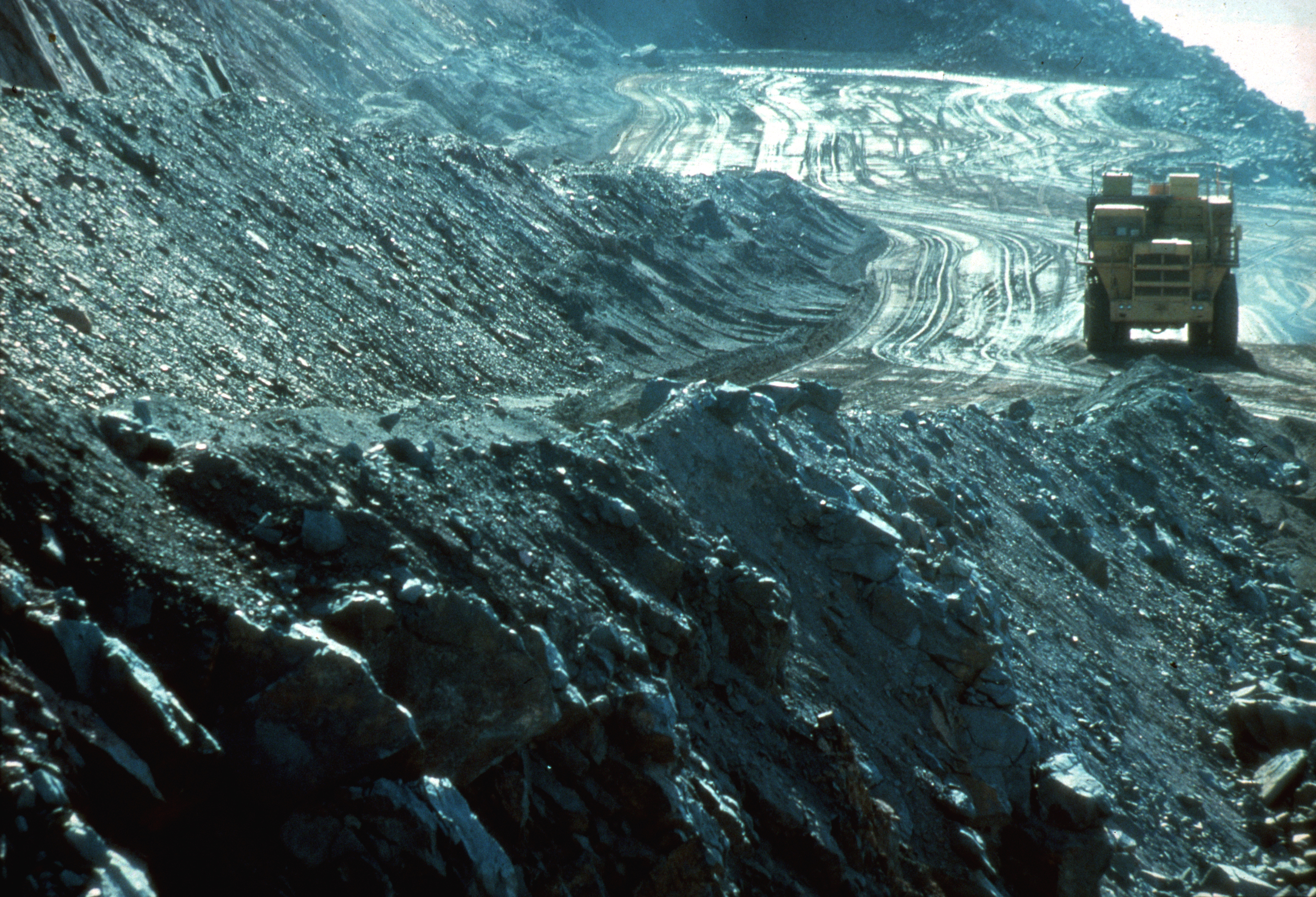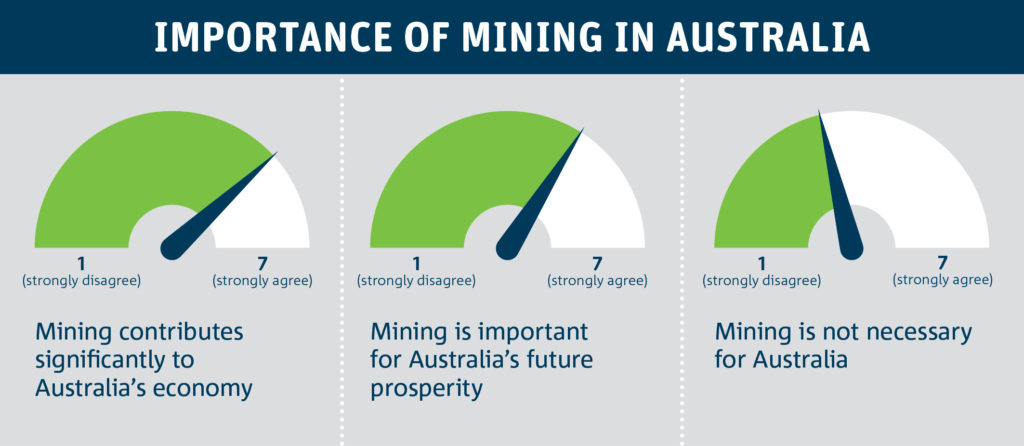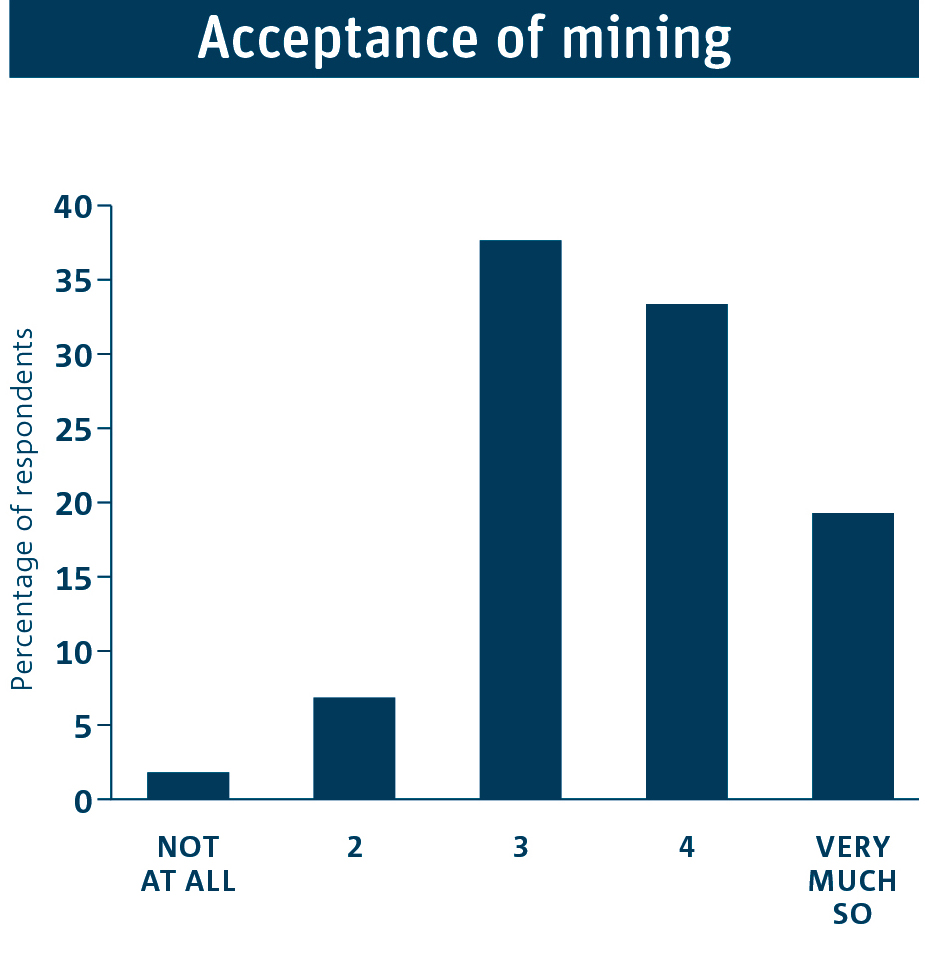A dump truck driving through an open cut mine
A dump truck drives through an open cut mine. Image by CSIRO Publishing
It’s no secret that mining is important to Australia, but that doesn’t necessarily make it popular with society at large.
We wanted to have a better understanding of what Australians think about mining, so in 2013/14 we conducted an online survey of 5,121 Australians.
The survey results have now been published as Australian attitudes toward mining: Citizen Survey – 2014 Results
Surveying community attitudes helps us to understand the impacts and benefits of mining, and how the relationship between the mining industry, government and society affects what Australia’s citizens think about it, and how much they accept the mining industry. It gives us insight into what needs to happen before mining has a ‘social licence to operate’ in Australia.
Scale chart showing community views on importance of mining
Is mining important to Australia?
We’ve gone beyond basic descriptions of attitudes towards the extractive industries, and looked at the relationship between mining and society in a more constructive and sophisticated way.
We wanted to know what goes into influencing trust in the mining industries, and the government, over mining developments. What, for example, is the relationship between good governance and social acceptance of the extractive industries? What are the key issues for a productive dialogue between the extractive industries and other stakeholders?
Bar chart showing Australians' level of acceptance of mining industries
How much do Australian accept the mining industries?
Some of the important findings from the survey are that:
- People view mining as central and significant to Australia’s economy and standard of living. They see it as a ‘necessary’ industry for Australia, which is important to Australia’s future prosperity
- Australians generally understand what it means to have a significant mining industry. Overall, they think that at present the benefits of mining outweigh its impacts.
- The more the benefits of mining outweigh the costs, the higher the level of acceptance. If this balance is perceived to move toward the negative impacts of mining, acceptance of mining will be eroded.
- Australians trust and accept the industry more when they believe the industry is listening to them and will respond to their concerns, when benefits from mining are shared equitably, and when the legislative and regulatory frameworks in place make them confident that industry will do the right thing.
- Governments and industry need to work with communities to earn and maintain the ‘social licence to operate’ and develop effective, constructive, mutually beneficial relationships.





3rd October 2014 at 10:00 pm
Mining has the power to do a lot of good but also a lot of evil if not carefully managed.
As other activities with a big environmental footprint, mining should be subject to cautious permitting, strict regulatory conditions, transparency regarding impacts and monitoring, constant survey by agencies, sound closure plans, and a common developing project with the communities directly involved, so they feel they have a stake and a say regarding the mining bussiness. One should be able to answer the question: “given the pros and cons, how this activity makes our community better off in the long term?”. If its not clear, don´t mine.
3rd October 2014 at 1:29 pm
I have been employed in the Iron ore / oil and gas industry for the last 6 years. while we all enjoy the money, most people with a conscious know the damage we are doing, not only to the land but the animals as well, While the Environmentaly friendly adds TV about little kangaroos on Barrow Island make us all feel good about ourselves, the number of them and other native wild life killed by vehicles is staggering, but kept silent.
The MUD the drillers use when drilling around the Water Basins in Queensland is a potent mix of toxic chemicals, referred to as mud so as not to alarm the population.
3rd October 2014 at 6:09 pm
Bloody Hippocratic person, stand by your principals or pull ya head in.
3rd October 2014 at 12:06 pm
The comments to date (limited in number yet it is true) illustrate how difficult it is for true believers in something to accept that there is a rational alternative. I guess we all would like questions to be directed to elicit answers which support our pre-existing beliefs, (as practiced by the ABC and other journalists these days).
3rd October 2014 at 11:46 am
I agree; it would have been useful to have teased out the potentially different attitudes to different types (coal, gas, minerals, sand, etc) and locations (agricultural land, natural heritage sites, remote areas, etc) of mining. Interestingly only consultation with local community and respecting indigenous interests scored greater than 5.